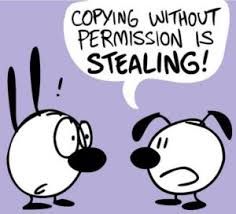|
Plagiarism
is reproducing someone else's work without giving them credit. Any student caught plagiarizing will receive a 0 for the assignment. To avoid this, list your sources as you work. Click here for videos about plagiarism. americanhistory.abc-clio.com/Tools/ResearchTools/1688523?categoryId=126 Paraphrasing to restate text in one’s own words. Changing only a FEW words from an original source does NOT qualify as paraphrasing. A paraphrase makes significant changes in the style and voice of the original while retaining the essential ideas. Copyright is a law protecting the intellectual property of individuals, giving them exclusive rights over the distribution and reproduction of that material. Intellectual property is a product of the intellect, such as an expressed idea or concept, that has commercial value. If it is a new or unique idea and/or departs from previous practice, it is considered an original idea and qualifies for copyright protection. What is the public domain?
Works in the public domain include commonly known facts, short phrases, ideas, theories and information that is readily available from a number of sources. Works in the public domain do not have copyright protection, meaning no permission is needed to copy or use those works. How much can I use without getting permission?
Fair use is the guideline for deciding whether using the source is permissible or constitutes copyright infringement. Under the fair use doctrine of the US Copyright statute, it is permissible to use limited portions of other’s work for news reporting and scholarly reports. What's the penalty for not getting permission? Anyone found to infringe a copyrighted work may be liable for statutory damages up to $30,000 for each work infringed. If willful infringement is proven, damages may be increased up to $150,000 for each work infringed. |

